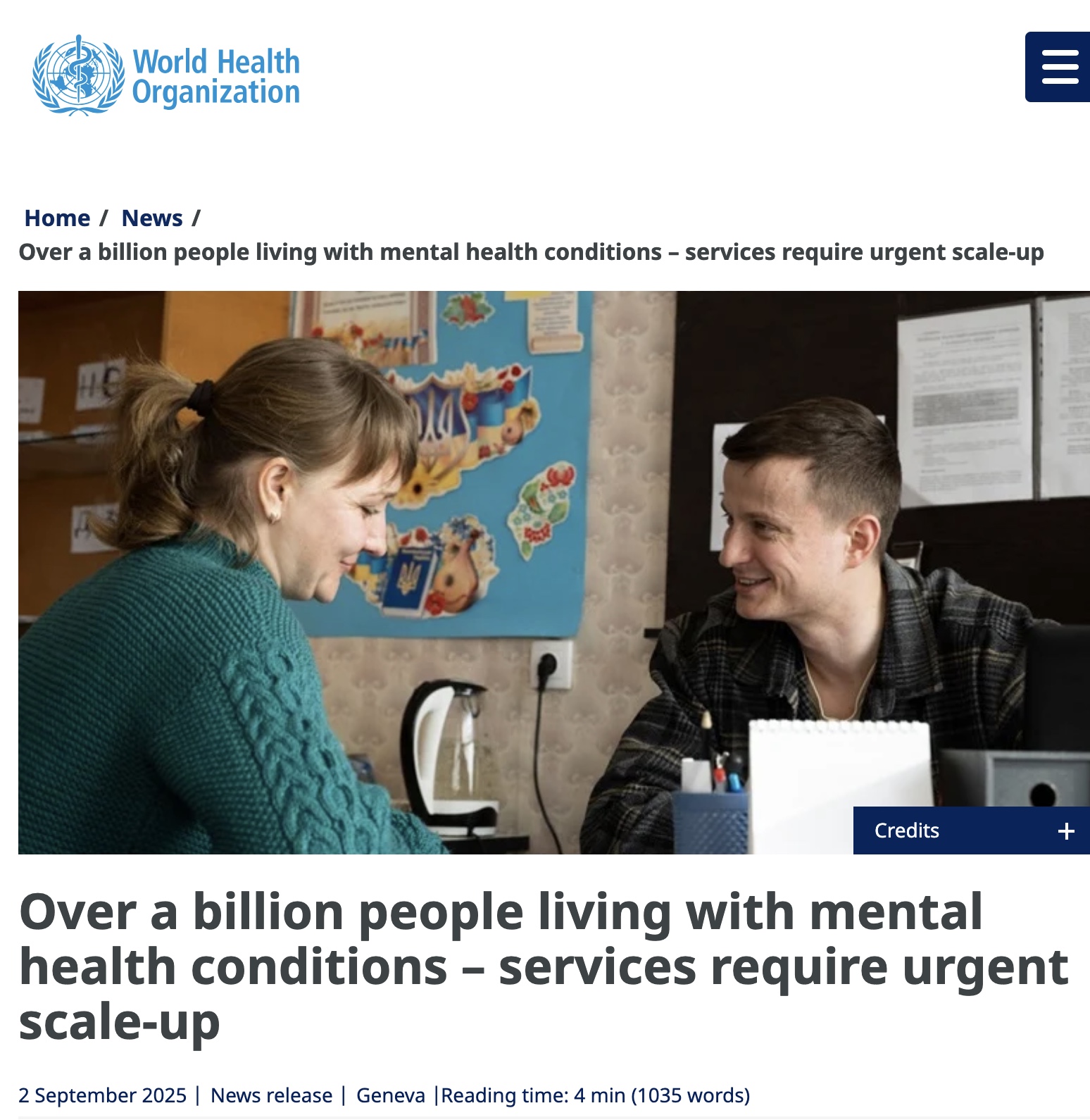I warned about this for the past 3 years. The WHO wants universal mental health care and to drug at least a billion of us.
We already know who the WHO works for. Big Harma. And the globalists want a dulled down population that is easier to control.
https://www.who.int/news/item/02-09-2025-over-a-billion-people-living-with-mental-health-conditions-services-require-urgent-scale-up
And as we saw with COVID, there will be plenty of willing “mental health practitioners” to drug the population, encourage gender switching or anything else they are paid to push on their unfortunate patients.
Do you think the WHO staff has been trimmed down sufficiently yet?

More than 1 billion people are living with mental health disorders, according to new data released by the World Health Organization (WHO), with conditions such as anxiety and depression inflicting immense human and economic tolls. While many countries have bolstered their mental health policies and programmes, greater investment and action are needed globally to scale up services to protect and promote people’s mental health.
-
equitable financing of mental health services;
-
legal and policy reform to uphold human rights;
-
sustained investment in the mental health workforce; and
-
expansion of community-based, person-centered care.
Note for editors
The World mental health today publication is a timely update to the data chapter of the 2022 World Mental Health Report: Transforming Mental Health for All. As mental health transformation continues to be needed worldwide, this latest release brings together the most up-to-date global data on the prevalence, burden, and economic cost of mental health conditions.
The Mental Health Atlas survey assesses the state of mental health services and systems across the world. This latest edition compiles findings from 144 countries and provides the most comprehensive representation of the world’s response to the challenge of mental ill-health through implementation of mental health policies, legislation, financing, human resources, availability and utilization of services and data collection systems. This latest edition includes new sections on tele mental health and mental health and psychosocial support preparedness and response in emergencies, which reflect the changing landscape of mental health and associated data gaps or information needs.